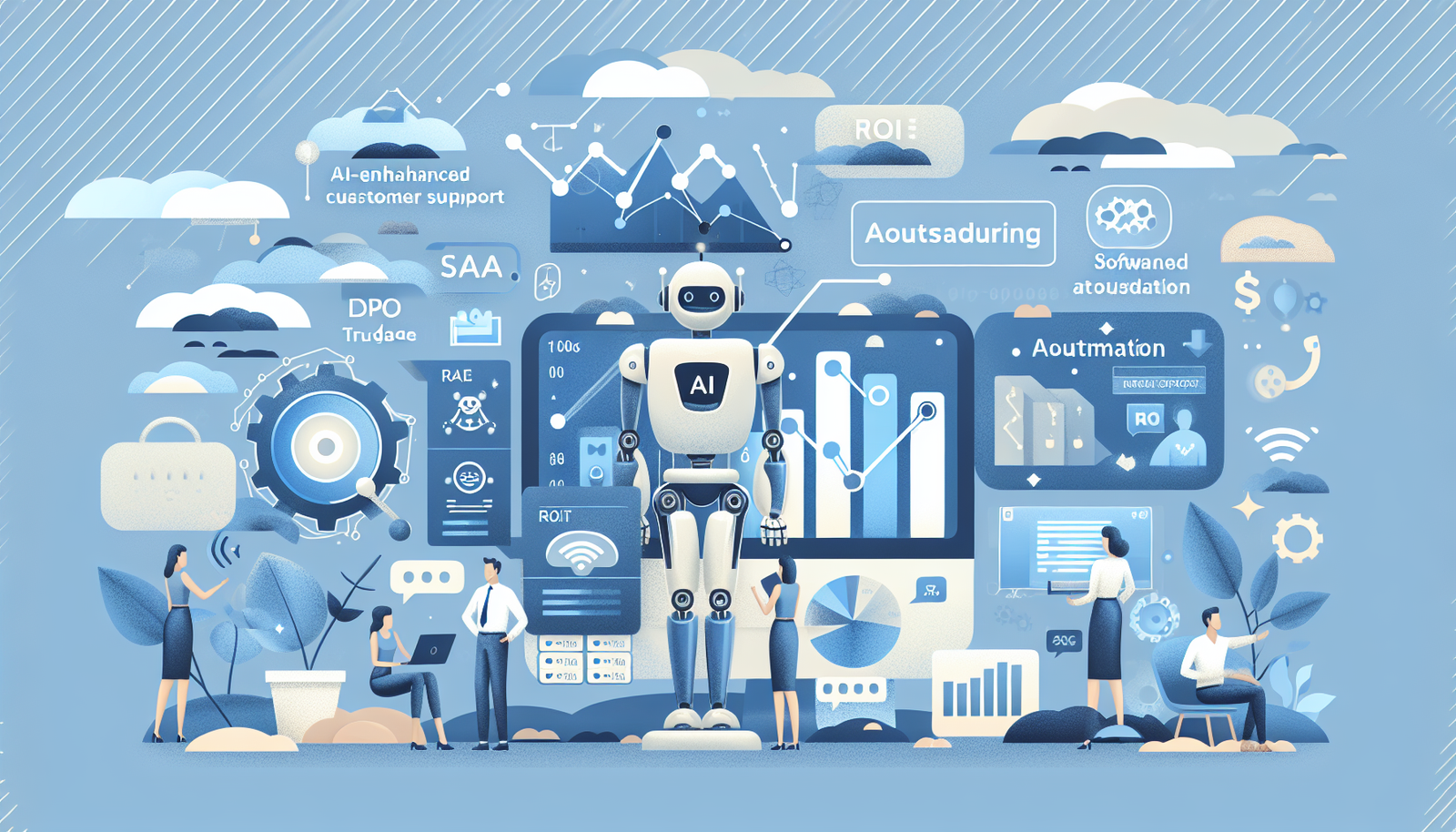Introduction: The Rise of AI BPO for Customer Support in 2025
AI-driven business process outsourcing (AI BPO) has transformed from hype to necessity in 2025. With growing pressure to enhance customer experience (CX) while reducing operational costs, businesses are turning to platforms that combine automation, NLP, and real-time analytics to optimize support operations. High-intent buyers need actionable frameworks to make informed decisions in a crowded market.
Why AI BPO Is Transforming Agent Performance
According to Gartner, over 60% of BPO providers now offer embedded AI capabilities. These include intelligent routing, AI-powered agent-assist, and sentiment detection. Companies leveraging AI BPO solutions report reduced handle times and improved customer satisfaction scores, with ROI enhancements of up to 40%.
Essential Features to Expect from AI BPO Platforms
Omnichannel Service Orchestration
Your chosen platform should unify customer interactions across voice, chat, email, and social media. Integrated interaction histories ensure consistent service and reduce frustration.
AI Automation and Agent Augmentation
Top platforms apply AI not just for self-service chatbots but also to elevate agent performance. Features like live call summarization, suggested responses, and auto-ticket categorization enable faster resolution and more impactful customer interactions.
Multilingual NLP and Support Intelligence
Effective AI BPO tools integrate natural language processing (NLP) that works across regions and languages. This is especially critical for global support, where accurate sentiment detection and right-of-the-bat understanding can boost first contact resolution (FCR).
Real-time Analytics and Dashboards
Real-time dashboards allow managers to track key metrics like CSAT, AHT, and escalations. They also surface training opportunities and system usage trends, supporting continuous improvement.
Evaluation Criteria: How to Compare AI BPO Vendors
Onboarding Speed and TCO (Total Cost of Ownership)
Select vendors that can offer accelerated deployment with prebuilt templates and APIs. Transparent pricing and a clear breakdown of setup, support, and training costs are musts for calculating actual ROI.
Integration Flexibility and Ecosystem Support
The right platform integrates with your existing CRM, help desk, and knowledge base tools. Look for well-documented APIs, robust Zapier-like connectors, and plug-and-play apps usable with platforms like Salesforce, Zendesk, or HubSpot.
Data Security, Compliance, and SLA Clarity
Ensure compliance with GDPR, HIPAA, and regional data laws. AI BPO partners should offer end-to-end encryption, anonymization features, and clear service-level agreements (SLAs) with defined uptime and response metrics.
Vendor Viability and Roadmap Transparency
Long-term partnerships require stability. Evaluate the vendor’s funding, customer base, and release cadence. Request and review their product roadmap to ensure alignment with your future-state vision.
Implementation Strategy for Seamless AI BPO Deployment
Align Internal Workflows with AI Handoffs
Ensure harmony between automated workflows and escalation procedures. Map current support paths and overlay AI functionality to avoid customer drop-offs or repeat queries.
Train and Upskill Hybrid Agent-AI Teams
Your agents are now co-pilots with AI. Invest in upskilling on AI cue interpretation, new tool usage, and how to override faulty AI conclusions gracefully. This new symbiosis depends on trust and training.
Use Pilot Programs and Phased Rollout
- Start with one customer segment or region
- Monitor CSAT, efficiency gains, and edge cases
- Iterate and expand in second and third phases
A phased approach minimizes risk while ensuring long-term scalability.
Red Flags to Avoid When Selecting an AI BPO Partner
Overpromising Generative AI Without Operational Value
Be wary of vendors whose demos emphasize generative capabilities without showing use-case relevance—e.g., hallucinated chatbot replies or poorly tuned LLMs.
Lack of Contextual Data Integration
If the system can’t access past support tickets, CRM data, or product specs, the AI’s usefulness drops significantly—regardless of how advanced its modeling is.
Poor Support for Customer Feedback Loops
AI systems need feedback to improve. Platforms should allow real-time corrections, supervisor reviews, and learning model tuning based on real-world input.
FAQs: Choosing the Best AI BPO Platform
What’s the average implementation time for an AI BPO platform?
It varies by complexity, but the average range is 4–12 weeks using modular deployment. Some vendors offer ‘fast track’ pilots in under two weeks.
Are AI BPO platforms compliant with data privacy laws?
Top vendors offer full compliance with global standards like GDPR, HIPAA, and CCPA, along with built-in data masking and consent frameworks.
How do I measure ROI for an AI-enhanced BPO operation?
Track KPIs like reduction in AHT (average handle time), increases in CSAT (customer satisfaction), agent utilization, and resolution accuracy over time.
Focus Keyword: AI BPO platform for customer support






